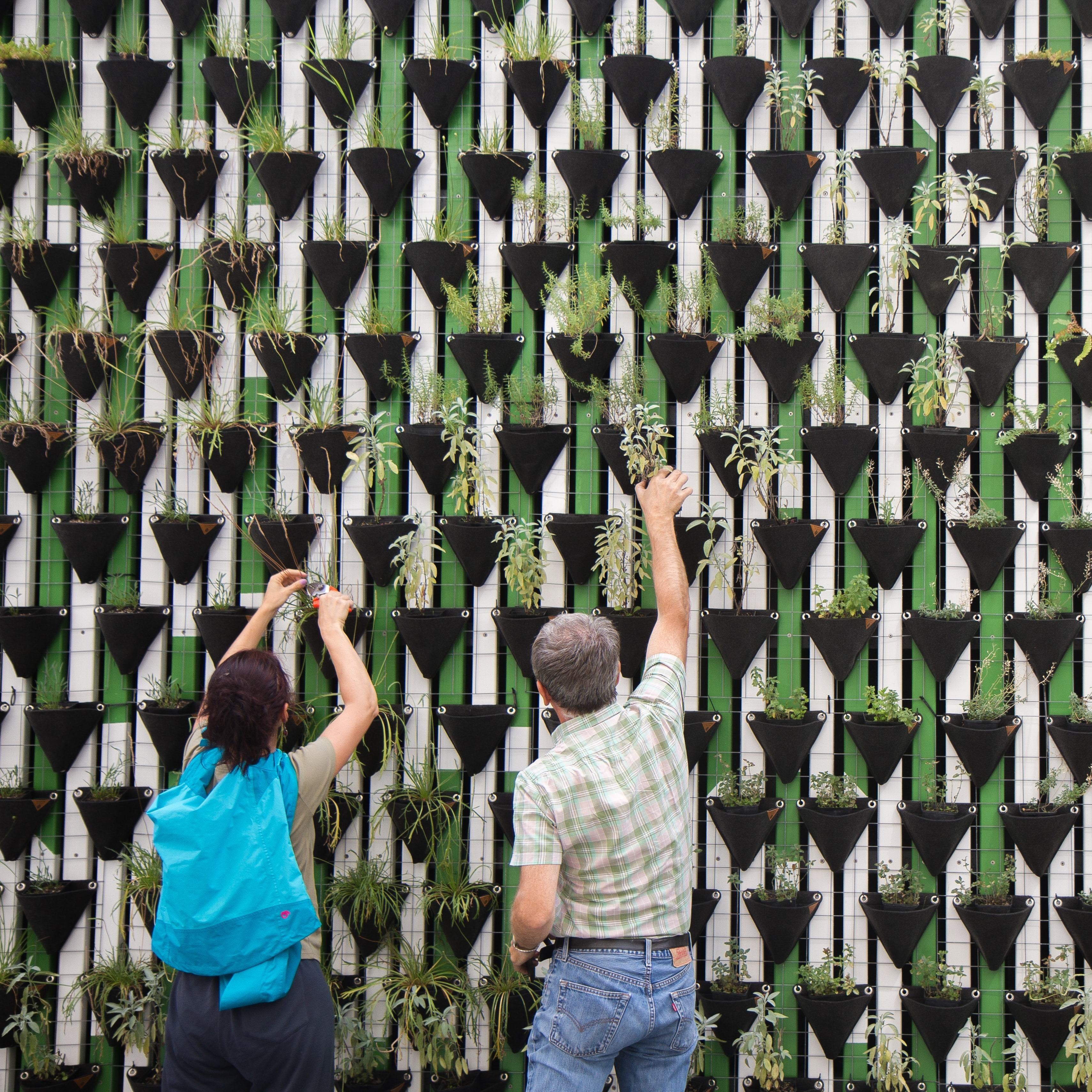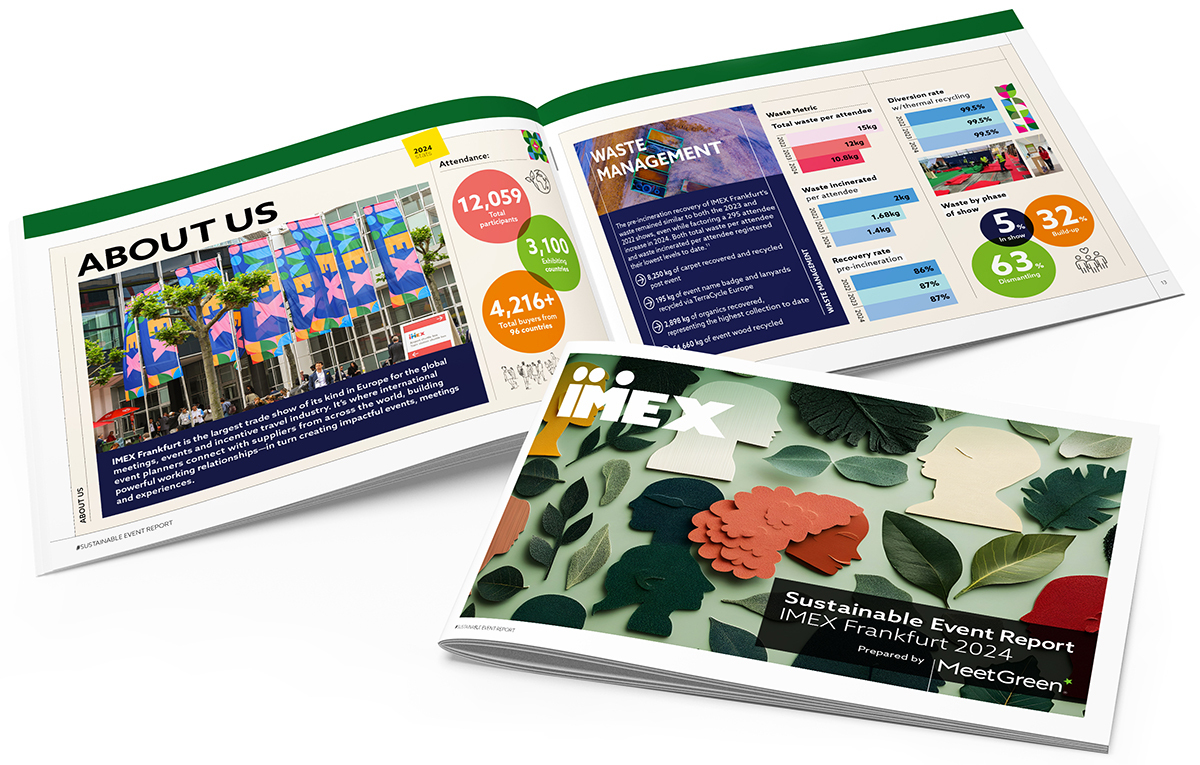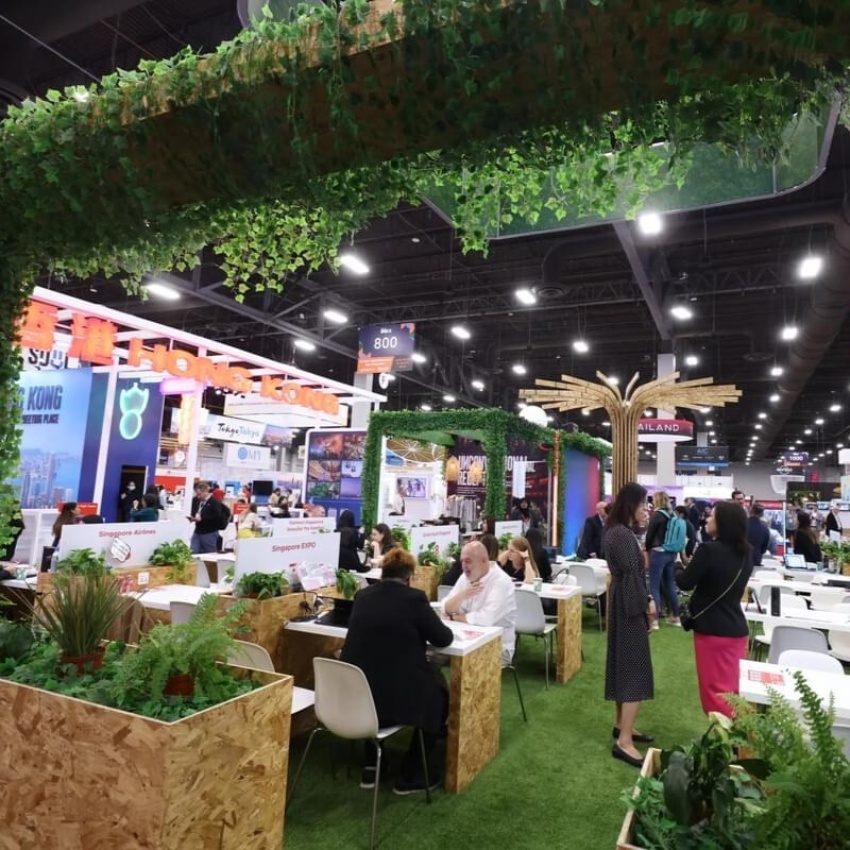Events have incredible power to positively impact the lives of their attendees. However, there are several challenges to consider around sustainability.
What are the challenges of sustainability in events?
Minimizing waste, sourcing sustainable suppliers and choosing planet-friendly food and beverage options are just some of the sustainability hurdles cited by event professionals in recent research (AMEX 2025 Global Meetings and Events Forecast).
Let’s look at the typical waste generated by a conference attendee. According to MeetGreen, a single guest, on average, discards 1.89kg of waste per day, of which 1.16kg is sent to landfill. To put this into perspective, the weight of landfill adds up to the equivalent of 2.6 compact cars for a three-day 1,000-person event.
As an industry, we’re running out of time and space to tackle these challenges. We’re rapidly approaching the 2030 target to reduce emissions by 45 per cent called for in the Paris Agreement. Also, landfill sites globally have rapidly dwindling capacity. And experts predict that capacity could be exceeded in the next decade.
With legislation holding organizations accountable and increased pressure from clients and partners to offer more sustainable services, it has never been more necessary to start your sustainability journey.
Addressing the challenges of sustainability in events
Research shows that the event industry has made progress to address sustainability challenges. The results of Convene’s 2023 Meetings Market Survey showed that three out of five planners said they’re more intentional about designing events with green initiatives than before the pandemic. Only 14 per cent of planners in 2019 said they included sustainability elements in their RFPs, compared to 31 per cent who did so in 2023.
28 per cent of Convene’s survey respondents had created an internal sustainability policy. And nearly the same percentage (27 per cent) had increased sustainability reporting.

This is supported by data from isla. Their research at IMEX America last year (2024) found that 75 per cent of respondents were already:
- Leading sustainability initiatives
- Incorporating sustainable practices into event operations
- Actively advocating for greener approaches.
- Improving sustainability knowledge
However, isla’s research also uncovered some of the barriers faced by event planners. One in three respondents cite client or stakeholder demand as their biggest sustainability challenge. Lack of knowledge (29 per cent) and lack of budget (22 per cent) followed closely behind.
Participants shared their thoughts on what would drive improvement—and increasing client education came out on top at 42 per cent. It appears that knowledge gaps may be a barrier to meaningful sustainability progress. By improving understanding among their team and stakeholders, organizations can find ways to leverage that awareness to reshape their event practices.
Share what you learn around sustainability in events
Recording and sharing an event’s sustainability journey can be a good way to build awareness and understanding around the issue. As well as showing the resources and efforts put toward making progress.
It won’t all be success stories however. It’s important to clearly demonstrate the various experiments, challenges and learnings along the way.
At IMEX, we recently shared our Sustainable Event Report for IMEX Frankfurt 2024, with insight from behind the scenes. The report is designed to allow planners to draw on the eco-friendly practices shared in their own events.
Our ethos is to share what we learn. As well as being transparent in reporting our progress, we want to present a realistic overview of what worked and what we can do better.
In this way we hope to broaden the industry's understanding. And bring others along with us as we champion best practice.
Use the collective power of events industry to address sustainability challenges
Addressing the challenges of sustainability in events is not easy, but it's essential. The enormity of the climate crisis may leave some event professionals wondering: where do I start? As an industry, we have both great power and responsibility. We must make sure our events have a positive impact.

Download the
Frequently asked questions:
Why is sustainability important in the events industry?
Events have a significant environmental impact, from waste generation to carbon emissions. Addressing sustainability helps mitigate this impact while meeting legislative requirements and client expectations, ensuring the industry's long-term viability.
What are the main challenges in achieving sustainability for events?
Event professionals face challenges including reducing waste, finding eco-friendly suppliers, and selecting sustainable food and drink. They also face knowledge gaps and budget limits.
What role does education play in sustainability efforts?
Education is key, as knowledge gaps hinder progress. Increasing client and stakeholder awareness about sustainability helps secure support to drive more intentional and effective green practices.
How can organizations share their sustainability journey?
Recording and transparently reporting sustainability efforts, including successes and learnings, builds awareness and provides actionable insights for others in the industry.





